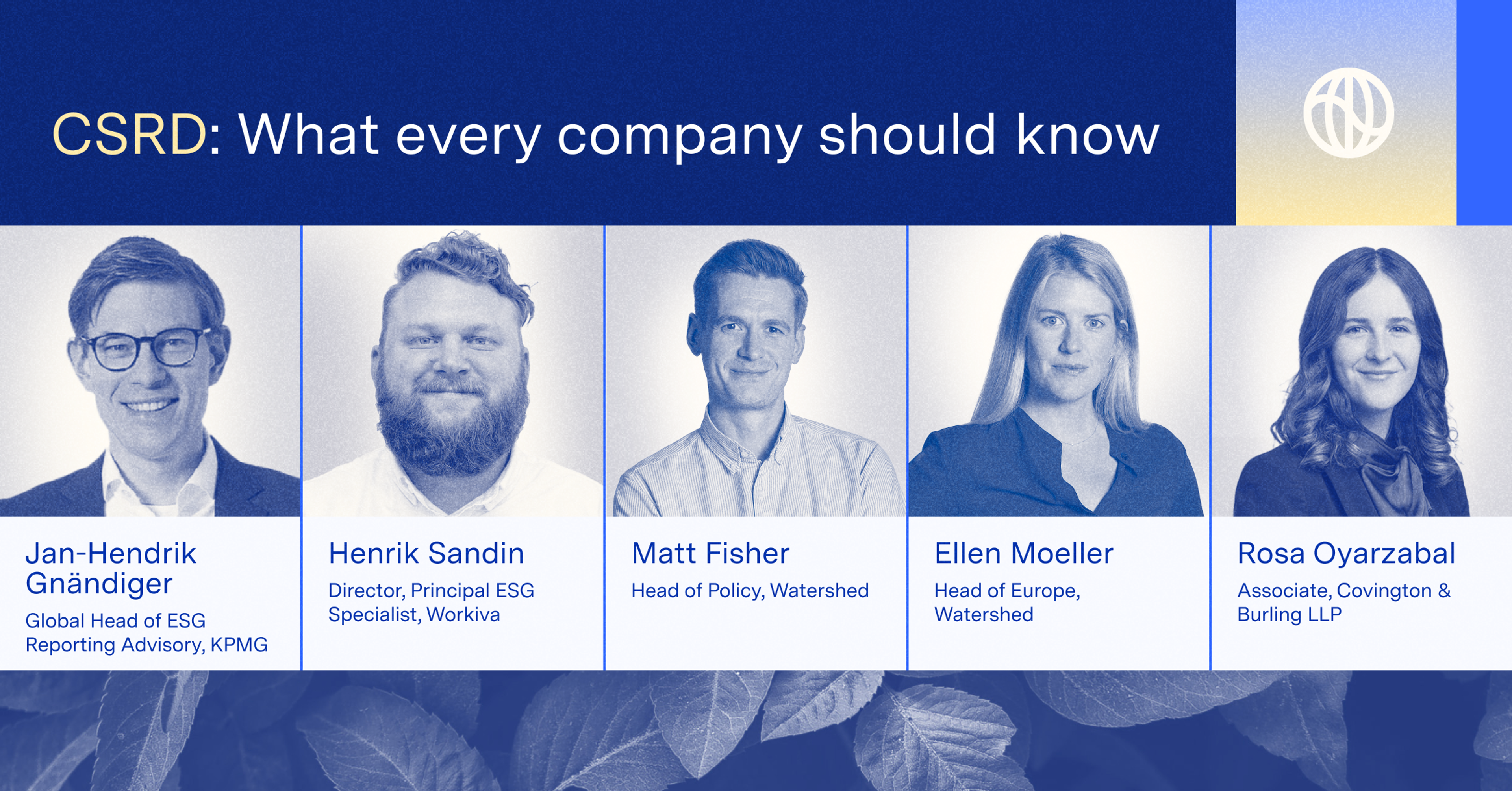The EU’s Corporate Sustainability Reporting Directive (CSRD) significantly ups the ante on sustainability reporting, capturing more than 50,000 companies in its scope and requiring a new level of rigor.
Complying with the CSRD can be intimidating for companies, but those companies that plan ahead and complete the reporting process successfully will find it unlocks many opportunities.
Recently, we gathered our expert partners at KPMG, Workiva, and Covington for a webinar where we got deep into the weeds of the CSRD, including common mistakes to avoid and some of the CSRD’s biggest surprises. Read on for key take-aways, and if you need a refresher on the basics of the CSRD, check out our guide.

Jan-Hendrik Gnändiger of KPMG
On the key first step:
“The double materiality assessment (DMA) needs to be the basis for everything. You cannot start the CSRD reporting process without having done this exercise.”
On what to avoid:
“One of the greatest errors I've seen is to start a gap assessment without having done a double materiality assessment, because then you’re doing a gap assessment on non-material topics—and that is really awful because you’re doing useless work.”
Recommendations:
- Use the DMA as an opportunity to get visibility and collaboration with different parts of the organization. The compliance reporting team shouldn’t work on it in isolation.
- But: don’t make it too complex. Limit your input to the most relevant voices. You don’t need to interview thousands of stakeholders.
- View the DMA as an opportunity: it provides valuable insight into how ESG is impacting your business.
Henrik Sandin of Workiva
On obtaining internal board and audit committee approval on CSRD reports:
“If your current terms of reference states that your annual accounts are signed off by x, y and z, whichever committee, whichever board—now realize that CSRD reporting is part of that…You need to make sure you have the right people on those committees to make sure that they actually have the right knowledge.”
The key point to remember:
The required disclosures in the CSRD will be incorporated as part of your financial reporting, and you can incorporate review of these disclosures into your existing annual reporting review processes.
Rosa Oyarzabal of Covington
On business opportunities from CSRD reporting:
“Once all that sustainability information—both on environmental and social aspects—has been collected, companies may be able to leverage it to make favorable claims about themselves or their products.
For example, the EU is now in the process of implementing really stringent greenwashing rules, specifically on the business-to-consumer side. But all the data tracked during the CSRD can allow companies to make claims about things that they didn't know previously, and be able to use it.”












